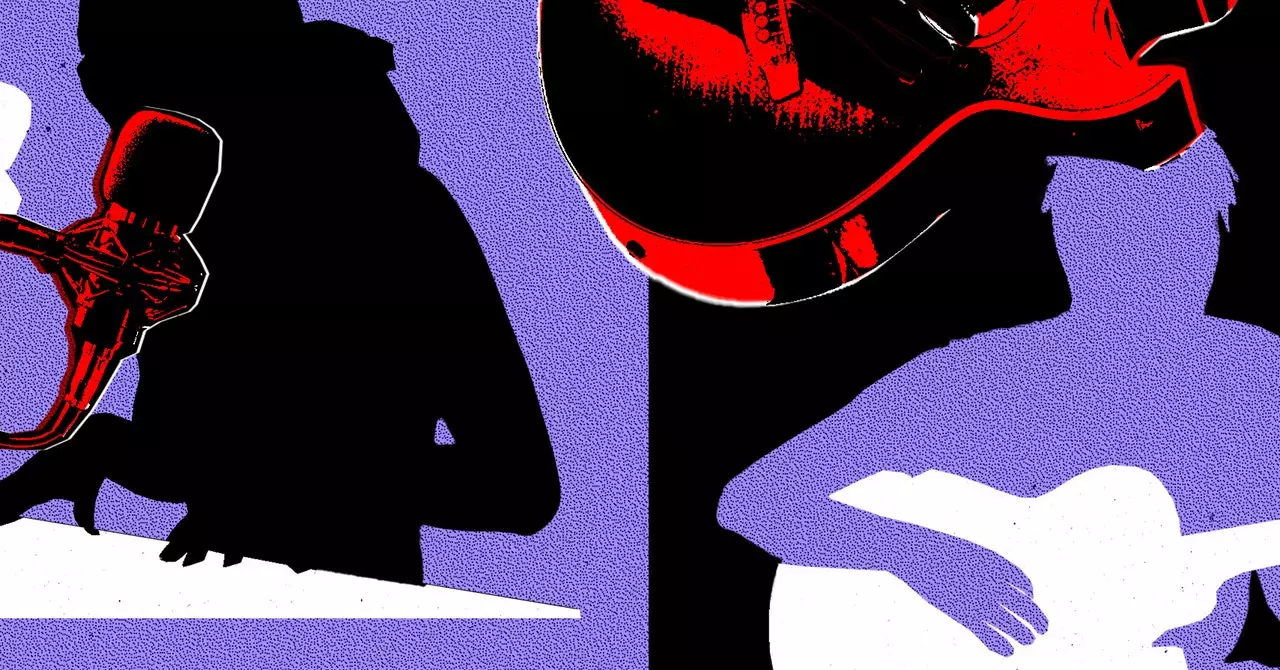The integration of artificial intelligence (AI) within the music industry has sparked vibrant debates among musicians and producers alike. With AI tools proliferating, ranging from those that generate music from scratch to others that assist in mixing, mastering, and even lyric composition, the landscape of music creation is rapidly transforming. A pivotal question arises: Are these advancements empowering artists or threatening their livelihoods?
Not all AI music tools are created equal. Some, like Google’s MusicFX and Suno, focus on generating new, original material. Others, however, serve crucial roles that facilitate the production process—extracting audio stems from existing tracks or helping with the refinement of sound. In this evolving ecosystem, both amateur creators and seasoned professionals are discovering ways to incorporate these technologies into their workflows. For example, Sam Hollander, a well-respected figure in pop music known for his collaborations with names like Panic! at the Disco, illustrates the transformative potential of these tools. He parallels the rise of AI with the introduction of drum machines in the 1980s, emphasizing the need for session musicians to adapt and innovate to maintain relevance.
Artists today face a dual pathway: fully embracing AI as a collaborative tool or resisting its influence to preserve traditional methods. Hollander recounts collaborations with a UK grime producer who utilized tools like Suno and Udio to craft funk and soul samples. Once a desirable outcome emerged, another AI application was employed to extract the sound for integration into his music. This procedural blend reflects a broader trend of adaptation—a necessity in the fast-paced environment of contemporary music production.
Despite the enthusiasm for AI tools among some producers, there exists a significant faction within the music community that perceives these technologies as an existential threat. Recently, thousands of creators joined together to express their concerns, suggesting that AI’s encroachment on music-making processes jeopardizes the very livelihoods of those who produce the genuine, original content that fuels the industry. The letter they signed raises critical ethical questions surrounding intellectual property and the future of creative arts—a future some fear may lean toward the generic and formulaic, as machine learning algorithms churn out content based on historical data without true human emotion or craftsmanship.
In navigating these uncertainties, creators like Hollander utilize AI as a source of inspiration rather than a replacement for original artistry. He notes that while AI can generate ideas, humor—an essential element of some genres—remains a challenge for machine algorithms to capture fully. This notion emphasizes the importance of human input in keeping music engaging and vibrant.
Interestingly, the AI music landscape can be viewed through two distinct lenses: the novelty of shock-factor results and the tranquil realm of ambient music. Projects that draw on the amusing or absurd aspects of AI can garner significant attention. For instance, viral phenomena such as a humorous SpongeBob rap highlight how AI can engage audiences through entertainment. Other AI efforts, like those represented by channels focusing on ambient music, show a different side—subtle, almost unnoticeable AI contributions that create soundscapes blending seamlessly with traditional compositions.
The latter example illustrates how AI has moved from being a curiosity to an integral part of producing music that resonates with audiences, often without drawing attention to its artificial origins. As these channels accumulate millions of views, they demonstrate that what began as simple experimentation is evolving into a more accepted avenue within mainstream music production.
AI’s role in music production is undeniably complex and layered with both opportunity and impending challenges. As the industry grapples with the implications of these technologies, artists must choose how they engage with AI—whether to utilize these tools as a means of creative enhancement or to resist their encroachment on traditional artistry. Ultimately, the future of music will depend on a delicate balance between technological innovation and the preservation of the human spirit that drives creativity. As the conversation continues to unfold, one thing remains certain: adapting to the changing tide of AI in music will be essential for both the preservation and evolution of the art form.

